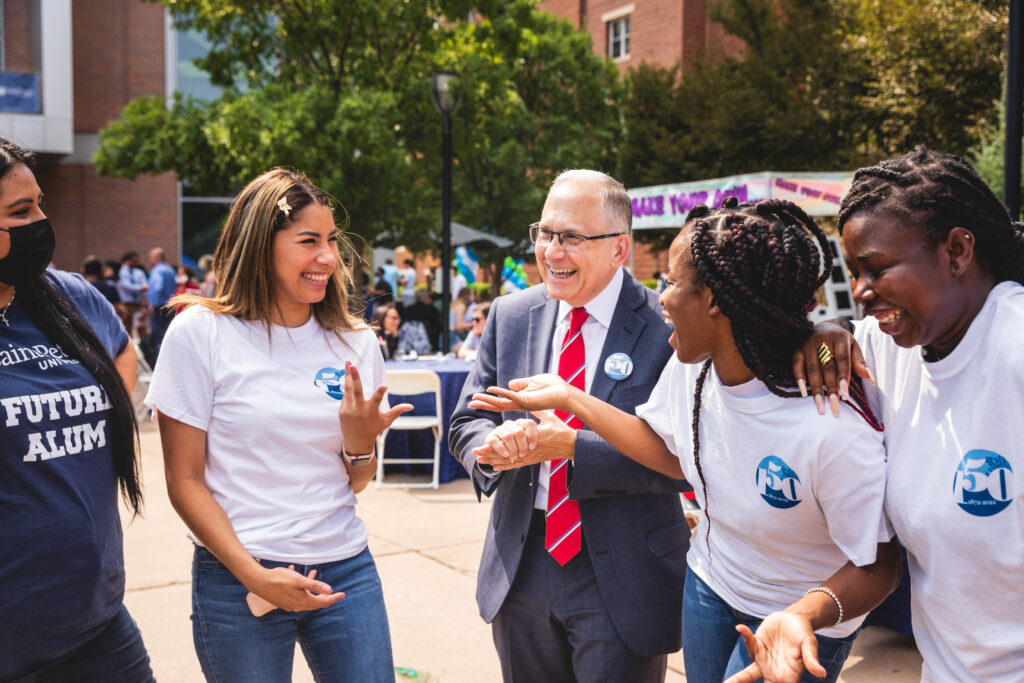 Eugene J. Cornacchia, Ph.D., president of Saint Peter’s University, recently shared this post on Medium.
Eugene J. Cornacchia, Ph.D., president of Saint Peter’s University, recently shared this post on Medium.
I was meeting with my admissions team recently, discussing how we could make it possible for a promising high school senior to attend this fall, when my thoughts turned to author and philanthropist MacKenzie Scott. A few months ago, she bestowed $4.2 billion of her Amazon wealth to 384 organizations, including $410 million to 35 historically Black, tribal and community colleges. Inside Higher Ed even dubbed Ms. Scott “A Fairy Godmother for Once-Overlooked Colleges.” And again, earlier this summer, she gave additional grants to 286 organizations, once again including universities.
Smaller, independent colleges like Saint Peter’s University could use a fairy godmother. Please understand me: we have many generous donors and have received substantial gifts that have funded essential facilities, programs and scholarships. In fact, we announced the two largest gifts — eight figure — in University history in the past three years alone. We are also grateful for the emergency relief provided through the American Rescue Plan Act of 2021 which will help us tackle the long-ranging challenges caused by the coronavirus COVID-19 pandemic. Even with this support, the playing field is far from level. If gifts that serve disadvantaged, marginalized and first-generation students were more commonplace, I wouldn’t be wondering, once again, how we might find room in our budget to bring in a student who may otherwise not be going to any college at all.
Those in a position to share their wealth frequently share it close to home, close to their own experience and interests. Consequently, highly resourced educational institutions are heavily endowed by alumni grateful for their successes and, sometimes, hoping to secure admission for offspring. With so many major philanthropic donations going to elite institutions year after year however, the chasm between haves and have nots has widened and societal inequities are reinforced.
Donors who care about closing the divide between the haves and have nots and advancing social mobility should be inspired by Ms. Scott’s lead and support smaller, less-resourced institutions with a long history of making a difference in the lives of students of color, first-generation students and students of limited financial capability. Here’s why.
● The vast majority of students in this country are educated at non-top tier institutions. Given the size of smaller, student-centric colleges like Saint Peter’s, we produce an impressive share of innovators and leaders in science, health care, business, education, government and more.
● There are real and detrimental costs to society when first generation students — who are among the brightest and most ambitious people you will ever have the privilege to meet — are held back and do not realize their full potential.
● Higher education is still the great equalizer in this country and colleges like ours do it more affordably, while providing more institutional aid, and helping students graduate on time and with less debt.
As president of Saint Peter’s University, I see the impact we make every day. We draw students from New Jersey and around the world, with our commitment to a transformational and affordable college experience for first-generation and other disadvantaged students. Most of our students know hardship intimately but they never let that interfere with their dream to attain a college degree. They are more determined than ever to make a difference in the world and believe me, they will.
In fact, the individuals who needed extra financial support some years ago are now Saint Peter’s alumni who are leading vaccine deployment to protect more people against COVID-19, discovering clean energy solutions and conducting important work to stem the spread of infectious disease. Our graduates have become critical care nurses, accountants, attorneys, public policy makers and teachers who are innovating K-12 education in this country. The world is better off when more students are given the opportunity to prove themselves and create better lives for themselves while giving back to their communities.
Expanded support for higher education that takes into account the contributions of less-resourced colleges and universities is critical to this effort. It’s the foundation of a resilient economy and will sustain our democracy and promote a just and more equitable society.
